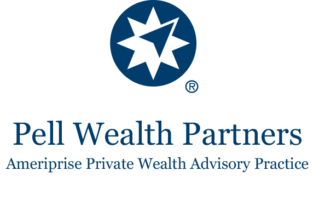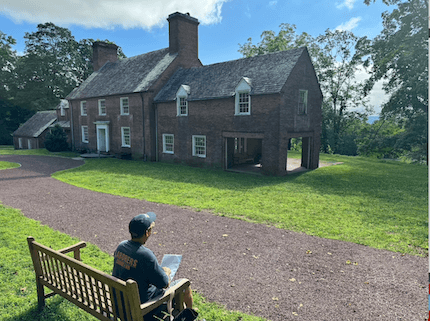Earth Matters focuses on conservation, sustainability, recycling and healthy living.
If Earth Matters to you, sign up for our mailing list and get the next installment delivered bright to your inbox.
by Marthe Schulwolf
Following a mention in a recent Earth Matters column (“Opting for Organic Landscaping in Rockland County”), people have been asking, “What really has been happening at Piermont Landing?” The short version is that, after 28 years of not using chemical landscaping, now pesticides are being applied out on the Piermont Pier.
Piermont Landing is the development that occupies much of the “Piermont Pier”–the man-made promontory and former industrial site that juts out about a mile into the Hudson River and is surrounded by the River, the Sparkill Creek, and the Piermont Marsh. In 1985, when Piermont was fighting on multiple fronts to develop the Pier in a way that would preserve both the village’s character and its economy, the Village Board officially designated this a “Critical Environmental Area.”
After several years of contentious village elections and environmental lawsuits, the present development was approved. The gated residential portion consists of 227 housing units (apartments and attached townhomes), organized into 4 subsections and an “umbrella” association, which controls all the landscaping and is known as the Piermont Landing Homeowners’ Association (PLHOA).
In 1993, when the first residents arrived, they learned that the sponsor, a subsidiary of a major bank, was planning an intensive chemical program for landscape maintenance. The residents protested. Only 2 applications took place that summer. By fall, the sponsor had ceded the issue to the residents, who made the decision to adopt organic landscaping.
For 8 years, an organic landscaper–knowledgeable and exclusively organic in his practice–maintained the property. In 2002, the PLHOA received the prestigious NYS Governor’s Award for Pollution Prevention, based on all the chemicals that were not applied during those years.
In 2001, a new Board President took over, whose son was a conventional landscaper. The organic landscaper was replaced by the president’s son, who was awarded a 3-year contract. After 2 years and a change in leadership, the son’s contract was terminated. The PLHOA then hired another conventional landscaper, with an informal agreement that he would not only abstain from using pesticides, but also learn organic methods. He was to consult with the organic firm and acquire knowledge, as well as adhere to the written specifications. These “specs” called for soil tests and natural fertilizers, as well as forbidding synthetic fertilizers, sewage sludge products, and pesticides. The plan omitted one crucial thing–oversight. In the absence of that, and based on information obtained from the landscaper himself, crucial aspects of this plan were ignored. All we can say with any certainty is that, for 2 decades, pesticides were not applied–what some people refer to as “organic by neglect.” Not at all the same as an active organic program focused on healthy horticultural practices and positive soil amendments, and anchored in knowledge and experience.
Last fall, a new PLHOA Board decided not only to change landscapers, but also to contract for a typical conventional program of pre-scheduled pesticide applications to kill “weeds” (meaning any plant that is viewed as undesirable in the location where it is found). The residents were only told that there would be a new contractor and that he would be “more aggressive” in his approach (apparently a euphemism for toxic chemical applications).
As it turned out, the landscaper that was hired lacked all the legal qualifications required to apply pesticides. NYS ECL (Environmental Conservation Law) requires that commercial landscaping firms have a Pesticide Business Registration and at least one Certified Applicator on board. If they wish to apply Restricted Use pesticides–as opposed to General Use products–that applicator needs to have the higher level qualification of “Commercial Applicator,” as opposed to the lower level qualification of “Technician.” The firm they hired, a NJ based company, had none of these qualifications in either New York State or New Jersey. On the contract, the landscaper listed false qualifications, using the New Jersey Registration and Certification numbers of an unrelated company.
On April 13, this landscaper applied a “weed and feed” product, i.e., a combination of synthetic fertilizer and herbicide, with the “active ingredient” Dithiopyr–a Restricted Use product in New York State, forbidden on Long Island due to its propensity to contaminate groundwater and its toxicity to aquatic organisms. DEC Enforcement came down and charged the landscaper with a misdemeanor and several violations, for which he has yet to be arraigned in Piermont Village Court.
Then, on Friday evening, June 18, the same landscaper went ahead and applied another pesticide “on the sly.” He sent an employee bearing no identification and carrying a backpack sprayer. After spraying mulched areas and sidewalk gaps around a few homes, the man was stopped by outraged residents and was photographed leaving the property in the landscaper’s truck. DEC will be investigating and more charges may ensue.
As to what he sprayed, he would only say “fertilizante” (Spanish for fertilizer). But this was obviously a nonsensical answer. The logical assumption would be a herbicide, Round-Up being the most likely culprit, as it remains the most commonly used herbicide in the United States despite massive lawsuits.
Incidentally, it is not unusual for conventional landscapers to deliberately describe applications as “fertilizer” in an attempt to obscure the actual nature of the chemicals that they are using.
You might conclude that this would give the Board pause for thought. But you would be wrong. Instead they have now hired another landscaper, this one appropriately Registered and Certified, to apply an even more nasty set of chemicals.
Their new contract calls for:
- An application of Imidacloprid, a NEONICOTINOID insecticide. “Neonics,” as they are sometimes called, are highly toxic to aquatic organisms, leech into local waterways, and are especially controversial due to their toxicity to pollinators (bees, birds, butterflies – all of the creatures without whom plants would not reproduce and agriculture would collapse). The EU has banned Imidacloprid for outdoor use. Maine has banned that as well, with limited exceptions. Other states have begun proposing bans of various sorts. This product is supposedly used to kill grubs. But, since it is being applied in blanket fashion, it is reasonable to assume that no one has actually scouted the property to see if there are any grubs that need to be killed. And, even if there were, there are better ways to deal with grub issues.
- Even more disturbing are TWO applications in the fall of a cocktail of FOUR herbicides (never tested in combination), in spray form (likely to be inhaled). The first of these four ingredients is 2,4-D, one of the 2 active ingredients in AGENT ORANGE. 2,4-D is persistent, easily tracked into homes and absorbed into surfaces, and strongly implicated in Non-Hodgkin’s Lymphoma and Parkinson’s.
As Eliot Spitzer said, when he was NYS Attorney General, “Pesticides pose health risks, even when used and applied in full compliance with manufacturers’ recommendations and legal requirements.” Hiring someone to apply pesticides for cosmetic purposes, even if they do it within the confines of the law, is still the wrong choice.
If you care about the environment on the Piermont Pier, if you are concerned about unnecessary poisoning of the soil, the air, and the water by cosmetic use of pesticides, visit our web site www.PiermontPierAlliance.org and sign on to our petition. Feel free to email PiermontPierAlliance@aol.com for more information.
Read Earth Matters every Wednesday on Nyack News And Views, or sign up for the Earth Matters mailing list.
Earth Matters is a weekly feature that focuses on conservation, sustainability, recycling, and healthy living. This weekly series is brought to you by Julie Wendholt, Financial Advisor & Vice President of Pell Wealth Partners, a private wealth advisory practice of Ameriprise Financial Services, LLC.










